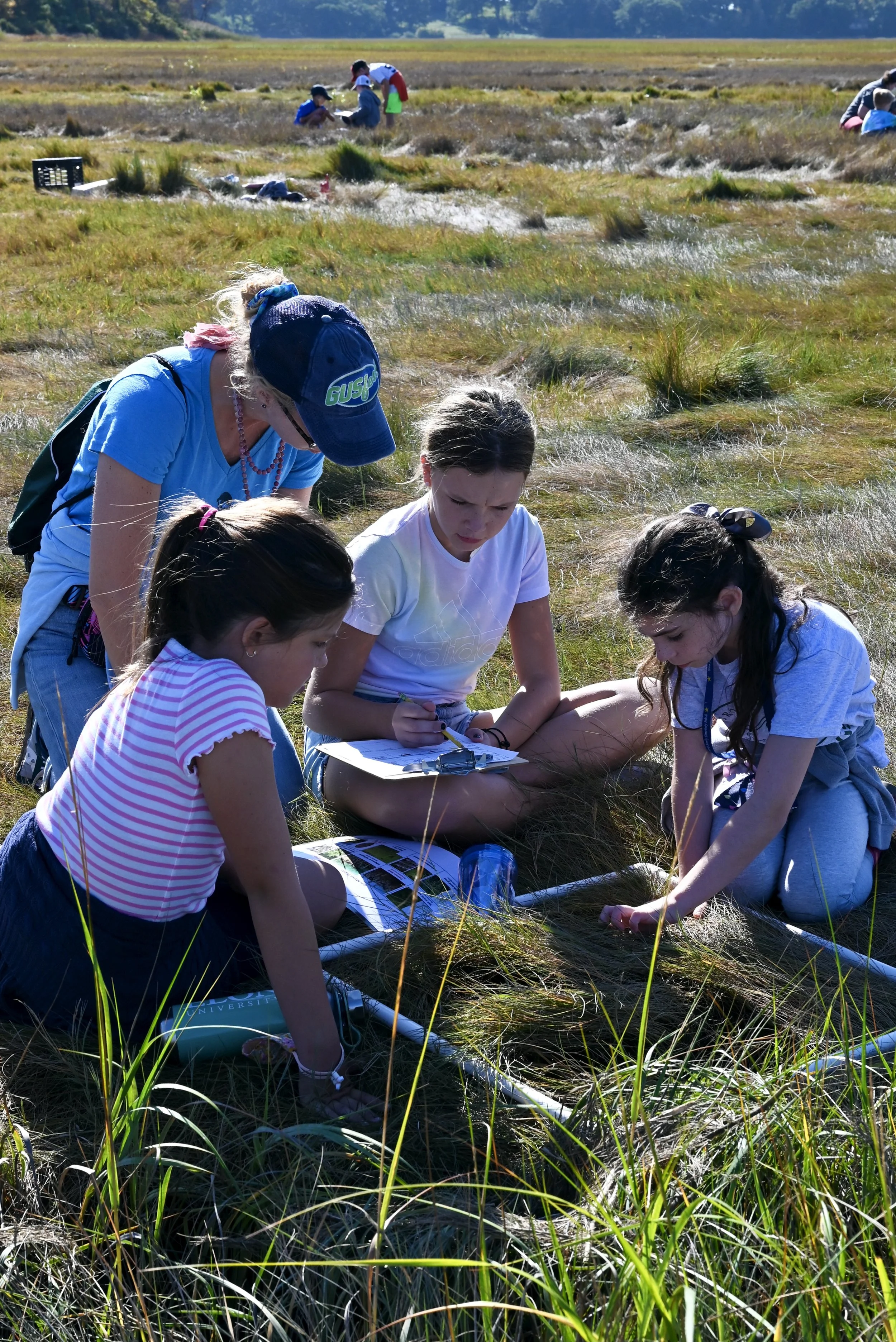How a Progressive Education Responds to the Times
Helping our children not only survive in a post-pandemic world, but thrive.
Sometimes, I find myself watching television and wondering where the masks are. Other times I’m waiting in line at the grocery store, looking at everyone wearing masks, and I just can’t believe that this isn’t a movie. Living through a global pandemic is normal and not normal all at once and even for adults, it’s a lot to take in. For children, we don’t even know what the long-term effects might be. Social distancing, quarantines, remote learning, all of these things have impacted children’s social-emotional development and certainly, their academic growth. As a trained social worker, as an educator and school leader, and especially as a parent, I can’t help but reflect on what this will mean for education in the future. While I’ve always believed that a progressive education model that puts the students' needs at the center of the experience is how students learn best, the need for this kind of approach is more essential than ever. Today, a truly progressive educational setting can help our children not only survive in a post-pandemic world, but more importantly, thrive.
Today, we are faced with a changing world. Not just with the pandemic, but the social unrest and political divisiveness our country has seen has also thrown us into a time of turmoil. In so many ways, the world as we know it is different, and our educational model must respond to those changes. This is why the progressive model is so relevant - it has always focused on the needs of the child. While the word progressive has taken on social and political meaning these days, the progressive pedagogy began in the early 1900s as industry was changing the country. Suddenly, life on the farm wasn’t the reality for some children, and a new model was needed that understood that a healthy child and good citizen was as important as an accomplished mind. Once again, we find ourselves at a crossroads where young people's worlds have shifted in ways we could not have foreseen even a decade ago. Now, more than ever, there is a need for an educational experience that not only puts the child at the center of the learning process but also offers a safe and flexible environment that can adapt and inspire students for the world of tomorrow. Progressive schools are uniquely positioned to handle the challenges of educating a new generation, yet, to help all our young people find true success, all schools must deliberately and meaningfully address a few key truths about our changing world.
1. The world can be mean, but school communities shouldn’t be.
Young people need to be deliberately taught how to be good citizens. Not just in the ways that John Dewey and other progressive educators believed back in the 1900s, but in a way that elevates civility and kindness. Our country has never needed compassionate and engaged citizens who can bring people together and rise above disagreement, more than it does today. A strong school teaches these skills with the same conviction they teach grammar and math facts - with a true belief that learning how to listen and how to disagree respectfully are as essential to success in the greater world as is learning how to write an essay. Perhaps more so. A school that emphasizes the importance of these values will develop students who will demand these values of the world. These students will demand a world where equity and justice aren’t just valued, but practiced. This must begin in the incubator that a school community can provide. A community that deliberately models, demonstrates, and teaches what a community can mean to an individual and to the larger world through meaningful practice.
2. Screens dominate our lives.
While learning how to navigate an online world is a part of every school program, demonstrating a sincere commitment to discovery in nature is something students need more than ever. In many ways, gone are the days when students played outside until the street lights came on. Getting dirty and being active are integral parts of childhood and the effect that time has on development, as an individual and as a student, is important. Learning needs to be an active endeavor, whether on field trips or in P.E., in the learning of languages, or in the learning of social skills at recess. Young people learn best by doing. Every opportunity to get moving or get outside makes learning more meaningful and therefore, more successful. Moreover, at a school where the outdoors is an extension of the classroom, educators can engage children’s natural curiosity through adventurous exploration, helping to develop an appreciation for the natural world that is vital for the future of our planet. Young people who grow up caring about the environment will be better positioned to tackle global warming and other environmental issues, not just as scientists and politicians, but as private citizens committed to doing their part.
3. Stress and anxiety run rampant in young people today.
The last thing they need is a program that forces them into a mold or makes them question their abilities. Our children need to be children with a future full of possibilities ahead of them. All too often, we see young people limiting themselves. I’m a soccer player. I’m good at math. I can’t sing. Especially in middle school, we want children to branch out, not limit possibilities. Schools that foster competition for grades, are overly concerned with test scores, or have toxic social environments, lose the joy in learning and trying. When students are worried about what people will think if they ask a question or what happened on the playground, they aren’t learning as much as they could. Real rigor is being empowered to bravely try new things and encouraged to always ask questions. To truly help young people learn and grow, school should be a place that cultivates an environment ripe with possibility.
4. The definitions are wrong and values are changing.
If we have learned anything from the pandemic, it’s that work can be redefined. So can schooling. What we understand as adults from our own school experiences should not be the basis for how we define an academic program today. Work itself is changing so shouldn’t we then feel freer to redefine what a rigorous education actually is? Maybe it isn’t logging hours at a computer, but instead, actively taking part in deepening students’ understanding. Instead, we should be preparing them for life, not by giving them all the answers, but by teaching them how to find them. Asking questions, developing a thesis or argument, collecting data, or seeking out additional resources. Students who have the tools to solve any problem, and confidence in their ability to use those tools, these are the young people who will be ready for any and every challenge. By inspiring students with real experience and helping them understand why this information is important to them, young people find a real rigor that goes beyond rote learning and ‘correct’ answers, and instead, pushes them to think creatively and to be actively engaged in, not only the learning process, but their own futures.
5. Relationships matter.
Living through the isolation of a pandemic has surely brought this home, but it has always been true. Today, students especially need a community of people who know and care for them. Obviously, friendships matter, but so do the other relationships students have at schools. Students need adult support, not just academically, but also emotionally. Cultivating strong teacher-student relationships is essential to students finding success in an academic setting. These relationships should be coaching relationships, where teachers demonstrate that they see a child’s strengths, are committed to finding areas of growth, and are always dedicated cheerleaders. As students realize that mistakes don’t define them but are a part of growth, a teacher truly becomes a partner in the learning experience. When students feel that a teacher is genuinely invested in their success, the learning that happens in the classroom is magical. When a child can feel the belief their teacher has in them, it gives them wings to push their learning to new heights.
More than ever, this isn’t just about what our students need, but what our world needs. I feel the need for schools to step up with a sense of urgency that I’ve never felt before as an educator. It is our responsibility as educators and parents to respond to the challenge of our times with all we have to give. Good enough is not good enough. Schools that focus on the child’s experience, that create an environment that is rich in learning opportunities and fosters meaningful relationships, that values community as essential to learning, these schools help students tackle all the craziness the world throws at them, while also ensuring they will grow into confident young people. Young people who are poised and ready, happy and healthy, creative and caring. Young people with the potential to make our world a better place.
This is why I love what I do at GUS. The values and progressive approach of our small school give me such a sense of hope. Hope that sustains me when I feel like we are living in something out of a sci-fi movie or when I turn on the news. Our ideas about what education should be are not new, they are the tenets of a progressive education and in the vision of what the Glen Urquhart School has been since its founding. What is new is the challenges our young people face today. Yet, with the right educational approach, we can not only grow a confident and happy generation, we can grow adults ready to make the world a better place. As we say at GUS, this I believe.





